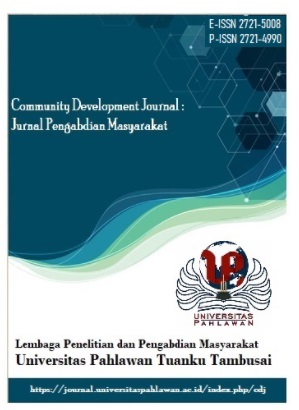THE PHENOMENON OF FLEXING BEHAVIOUR ON SOCIAL MEDIA EFFECTS ON COLLEGE STUDENTS’ PERSONALITY
DOI:
https://doi.org/10.31004/jrpp.v6i4.23577Keywords:
Social media, Flexing, College PersonalityAbstract
Flexing is a term or slang that defines the conduct of excessive self-promotion when someone is displaying something. This might include the practice of often releasing information after acquiring a new item, the technique of constantly sharing successes on social media or the behaviour of frequently uploading vacation photographs. The qualitative research in this study, which adopts a grounded theory technique, focuses on the flexing behaviour demonstrated by college students as participants. This study aims to "understand how different types of flexing behaviour effect college students' personalities." display disturbingly high rates of flexing behaviour because of their lifestyle and peer-reported behaviours. This flexing behaviour may be prohibited if it interferes with other activities, causes injury to others, or affects people's ideas of themselves.References
Asenahabi, B. M. (2019). Basics of research design: A guide to selecting appropriate research design. International Journal of Contemporary Applied Researches, 6(5), 76–89.
Bakti, U., Hairudin, & Alie, M. S. (2020). Pengaruh Kualitas Pelayanan, Produk dan Harga Terhadap Minat Beli Pada Toko Online Lazada di Bandar Lampung. Jurnal Ekonomi, 22.
Faizal, A. A., Naim, M., & Fauzi, A. (2022). Fenomena Instagram sebagai Sarana Eksistensi pada Kelompok Remaja di Kelurahan Sudimara Selatan. Buana Komunikasi (Jurnal Penelitian Dan Studi Ilmu Komunikasi), 3(1), 7–15.
Kompas. (2017). Pengaruh Media Sosial Bagi Remaja Konten ini telah tayang di Kompasiana.com dengan judul “Pengaruh Media Sosial Bagi Remaja”,. https://www.kompasiana.com/amipratiwi18/5902e5578c7e61e71b2c3016/pengaruhmedia-sosial-bagi-remaja
Pakpahan, R., & Yoesgiantoro, D. (2023). Analysis Of The Influence Of Flexing In Social Media On Community Life. JISICOM (Journal of Information System, Informatics and Computing), 7(1), 173–178.
Peters, K., Chen, Y., Kaplan, A. M., Ognibeni, B., & Pauwels, K. (2013). Social media metrics—A framework and guidelines for managing social media. Journal of Interactive Marketing, 27(4), 281–298.
Rosiyana, M. (2016). Perubahan Kepribadian. Pengaruh Teman Sebaya, 12.
Resstiani, S. A. (2010). Gejala shopaholic di kalangan mahasiswa. Skripsi. Bandung: Fakultas Desain Program Strata Satu Psikologi Universitas Komputer Indonesia.
Rifan Aditya. (2022). Apa Itu Flexing? Istilah yang Selalu Dikait dengan Sosok Crazy Rich Indra Kenz. https://www.suara.com/news/2022/03/21/122905/apa-itu-flexing-istilahyang-selalu-dikait-dengan-sosok-crazy-rich-indra-kenz
Steinfield, C., Ellison, N. B., Lampe, C., & Vitak, J. (2013). Online social network sites and the concept of social capital. Frontiers in New Media Research, 115–131.
Sugiyono. (2019). Metode Penelitian Kuantitatif Kualitatif dan R&D (kedua). Alfabeta.
Yadi, H. F., Firman, F., & Netrawati, N. (2023). The Effectiveness of Group Counseling Using a Humanistic Existential Approach in Reducing FOMO Learning in the New Normal Era. Widyagogik: Jurnal Pendidikan Dan Pembelajaran Sekolah Dasar, 10(2), 260–272.
Downloads
Published
How to Cite
Issue
Section
License
Copyright (c) 2023 Raihana Sakdiyah

This work is licensed under a Creative Commons Attribution-ShareAlike 4.0 International License.






